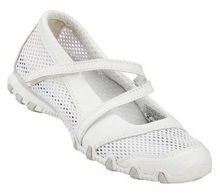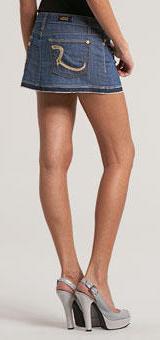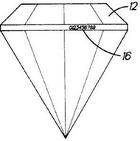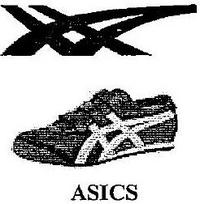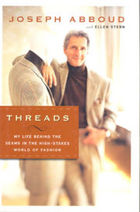Los Angeles, CA – Mark Gable’s copyright attorneys filed a lawsuit at the Federal District Court in Los Angeles accusing NBC’s “My Name Is Earl” television show of copyright infringement. Gable alleges that he authored a wholly original screenplay entitled “Karma” in 1995 and registered it with the Writers Guild of America (“WGA”) and – over nine years later – it was registered with the U.S. Copyright Office on September 20, 2004. In 1995, Gable alleges that he “distributed and circulated the screenplay to several literary agents and production companies, including, but not limited to, International Creative Management, William Morris, Creative Artist Agency, The Gersh Agency, United Talent Agency, and Alice Fries Agency,” which agencies are also believed to represent the producers named in the lawsuit, thus providing a scenario for access to Gable’s screenplay.
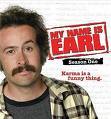 In August of 2005, Gable allegedly discovered that “NBC was airing a new television series entitled, “My Name is Earl” containing the same, somewhat unusual, literary theme as the Screenplay; i.e. turning bad Karma into good Karma by righting past wrongs/making amends. After viewing several episodes of the Television Series, Gable formed the belief that the Television Series was very similar to the screenplay, incorporating wholly original elements therefrom.” Gable hired a third-party to make extensive comparisons between the screenplay and the television series, including the theme, plot, dialog, setting/place, mood, and characters (some of whom have the same names). The results of the comparison led Gable to believe that his screenplay was copied and the lawsuit was filed. The case is titled: Mark Gable v. National Broadcasting Company (“NBC”) and Gregory Thomas Garcia, CV08-04013 SVW (C.D. Cal. 2008).
In August of 2005, Gable allegedly discovered that “NBC was airing a new television series entitled, “My Name is Earl” containing the same, somewhat unusual, literary theme as the Screenplay; i.e. turning bad Karma into good Karma by righting past wrongs/making amends. After viewing several episodes of the Television Series, Gable formed the belief that the Television Series was very similar to the screenplay, incorporating wholly original elements therefrom.” Gable hired a third-party to make extensive comparisons between the screenplay and the television series, including the theme, plot, dialog, setting/place, mood, and characters (some of whom have the same names). The results of the comparison led Gable to believe that his screenplay was copied and the lawsuit was filed. The case is titled: Mark Gable v. National Broadcasting Company (“NBC”) and Gregory Thomas Garcia, CV08-04013 SVW (C.D. Cal. 2008).
PRACTICE NOTE: I am often asked by writers whether it is sufficient to register a screenplay with the WGA or SAG, and my answer is always a resounding NO. The most important place to register a screenplay or script is with the U.S. Copyright Office. In order to file a lawsuit to prevent the copying of a work, you MUST have registered the work with the U.S. Copyright Office. In order to recover statutory damages and attorneys’ fees from infringers, the work must have been registered with the U.S. Copyright Office before the commencement of the infringement or within three months from the date of publication. 17 U.S.C. § 412. In order to obtain prima facie evidence of ownership in the screenplay/script, the work must have been registered with the U.S. Copyright Office. I cannot emphasize the importance of filing your work of authorship with the U.S. Copyright Office first, in addition to registering it with the WGA or SGA. In fact, if you can only afford to register the work with one entity, it should be the U.S. Copyright Office in order to avail yourself to the advantages afforded by a copyright registration certificate.
 The complaint alleges that almost twenty years after the picture’s first distribution, Rudich’s counsel sent a cease and desist letter to MGM accusing it of copyright infringement in music and demanding payment of publishing royalties. On May 9, 2008, defendant or his counsel issued a press release repeating claims against MGM and referencing another lawsuit filed against MGM by the same counsel. On June 5, 2008, defendant’s counsel once against sent a letter to MGM threatening a lawsuit if a response was not received. Thus, MGM filed the declaratory judgment lawsuit seeking declarations from the Court concerning, among other things, the following:
The complaint alleges that almost twenty years after the picture’s first distribution, Rudich’s counsel sent a cease and desist letter to MGM accusing it of copyright infringement in music and demanding payment of publishing royalties. On May 9, 2008, defendant or his counsel issued a press release repeating claims against MGM and referencing another lawsuit filed against MGM by the same counsel. On June 5, 2008, defendant’s counsel once against sent a letter to MGM threatening a lawsuit if a response was not received. Thus, MGM filed the declaratory judgment lawsuit seeking declarations from the Court concerning, among other things, the following: Los Angeles Intellectual Property Trademark Attorney Blog
Los Angeles Intellectual Property Trademark Attorney Blog



